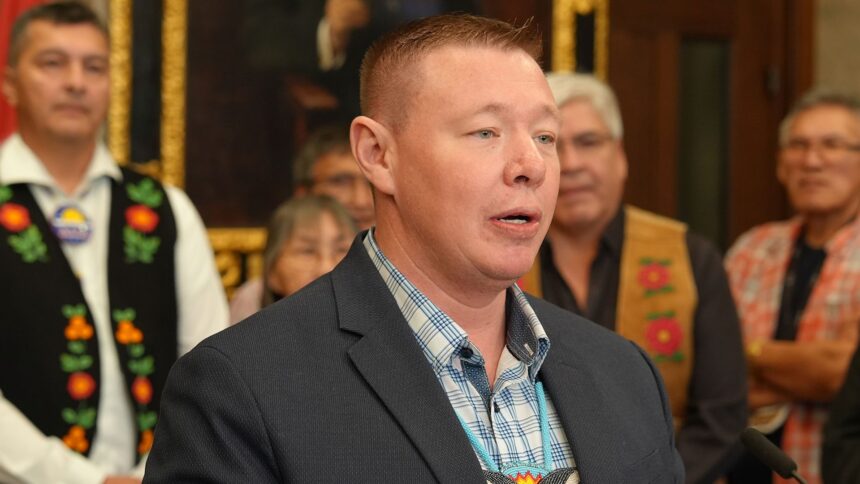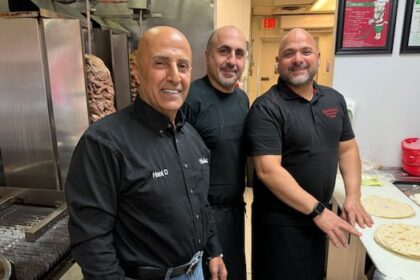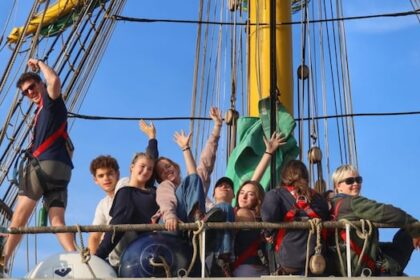Mi’kmaq MP Jaime Battiste has tabled a motion to create a study looking at the impacts of sections of the Indian Act that affect who can be established as a status Indian. Battiste, who represents the federal riding of Cape Breton-Canso-Antigonish riding, appeared before the Senate’s Standing Committee on Indigenous and Northern Affairs (INAN) last week and asked it to move forward in amending Sections 6.1 and 6.2 with the leadership and participation of First Nation communities in Canada. Those particular sections are also known as the “Second-Generation Cut-off” and have been in force since 1985. The federal government has authority over the Indian Act and who can be considered a status Indian in Canada. “This study will examine the impacts of the unstated paternity policy and the gradual decrease of status Indians in some First Nations bands,” Battiste told the Senate committee. “It will look for possible solutions and amendments.” ‘Genuine appetite’ The first Mi’kmaq to take a seat in Parliament, he said there has been a wish to amend or remove these sections for the past 40 years. “I think there is a genuine appetite to remove these second generation cut off clauses and unstated paternity policy. The question is: what do we replace it with?” Battiste said. Under the Indian Act, the registration of an individual is based on ancestry and the status of both parents. According to information on the Assembly of First Nations website, when a person files for First Nation Indian status, there may be situations where the parent, grandparent or other ancestor is unknown or willingly not stated on birth documents. “These types of situations could negatively affect a person’s ability to be registered as a status Indian,” the information said. People can be declared status Indians under the Indian Act if both parents are Indigenous as per 6.1. But if only one parent is Indigenous and the other is non-indigenous or not listed, the child can be listed as status Indian, but their child — if they have one — will not have status. People are losing their right to Indigenous registration after two consecutive generations of parenting with a person who is not entitled to registration themselves. This is why the clauses are referred to as “the second-generation cut-off” and First Nations communities are concerned about declining population. In some places, members can foresee communities being depleted of status Indians within two to five generations. Concerned about gender bias Also, First Nations women are concerned about the gender bias that continues in the existing system. Not all women want the name of the father on a birth certificate, and it is unfair to pressure them into doing so to prove their child’s status. Women and children continue to be more vulnerable to losing status than men. “The Indian Act perpetuates sexism, racism, and classism and must be dismantled so all Indigenous women, girls and 2SLGBTQQIA people can realize their vision of freedom, independence, and honour,” according to The Native Women’s Association of Canada. Read More: ‘It’s really, really serious’: ISC minister grilled by Senate committee on 2nd generation cutoff in Indian Act Battiste said the second generation cut-off and unstated paternity policies are “no longer working for First Nation communities.” “And I think we all know that it should be the First Nations communities themselves who decide who is and who isn’t a member of their communities, not the Indian Act sections from 40 years ago,” he said. ‘Free, prior, informed consent’ Battiste, who resides in Eskasoni First Nation and is also Parliamentary Secretary to the Minister of Crown-Indigenous Relations, said the government should want to hear from the best minds possible and move forward “in a way that can be seen as First Nations communities leading this charge.” Battiste said the question now is, how can this be done in a way that ensures a free, prior informed consent of First Nations communities. He doesn’t want to see any amendments as something that comes from Parliament or Senate or the Prime Minister’s office. “I do not believe in unilateral federal decisions on matters that I know are deeply meaningful to Indigenous communities across Canada. And I know that a one-size-fits-all approach generally does not work,” Battiste said. “Now is the time for conversation.” Difficult conversations Battiste, a lawyer, said he knows those conversations are sensitive and are going to be difficult. “I was the Mi’kmaw citizenship co-ordinator for four years for the Assembly of Nova Scotia Chiefs,” he said. “I know how difficult the conversation can be about who is included and who is excluded and criteria around that. “But it’s time for us to have that conversation, and it needs to be directed toward what do we amend to the Indian Act and how do we replace this and what is the will of the First Nations communities across Canada.” The legislation was introduced by Battiest in the Senate with the endorsement of the Liberal federal government. If the Senate passes it, it will still need to go to the House of Commons to be voted on. Story by Rosemary Godin, Local Journalism Initiative Reporter – Source: Cape Breton Post Continue Reading
MP Battiste tables motion to study amending Indian Act, wants to see more Indigenous leadership

Leave a Comment










